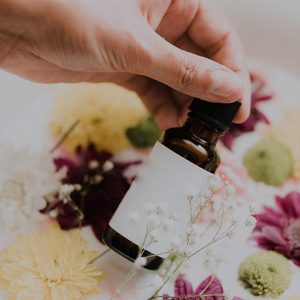Hair loss is a normal part of life, but it’s important to understand the difference between normal hair shedding and actual hair loss.
Everyone experiences some hair shedding, but it’s the amount that matters. Typically, shedding fewer than 100 hairs per day is normal, but shedding more than that for an extended period of time indicates hair loss. Chinese people generally have around 100,000 hairs on their head. Hair growth isn’t a continuous process, but instead occurs in stages.

The hair growth stages can be broken down into the following cycles:
- Anagen phase: This phase lasts for 2-6 years, during which various materials (primarily amino acids) are delivered to the hair follicle’s base via blood vessels. Cells utilize these materials to assemble and grow the hair. This phase lasts for 2-6 years.
- Catagen phase: This phase lasts for 2-3 weeks, and during it, the blood supply to the follicle base is cut off. In this phase, the base of the follicle gradually shrinks, the hair stops growing, but remains attached to the follicle.
- Telogen phase: This phase lasts for 2-3 months. After the hair stops growing, it enters the telogen phase, which is essentially a resting period for the follicle. The connection between the hair and follicle gradually disintegrates, and once it detaches, the hair falls out and the follicle begins preparing for the next growth cycle.
Although hair is constantly falling out, the follicle is always cycling new hair, allowing for a stable amount of hair to be maintained under normal conditions.
Shedding more than 100 hairs per day may be indicative of hair loss. But counting hairs can be tedious, so here’s a simple method to determine if you’re experiencing hair loss:
Perform the pull test: This method involves placing your fingers at the base of the hair, pressing your hand against your scalp, and then pulling your hair with force for ten reps. If you experience little to no pain and only pull out 5 hairs or fewer consistently, you’re likely fine. However, if you experience more hair loss during this test, you may be experiencing hair loss.
Causes of Hair Loss in Men
- Overwashing or Underwashing:
Washing your hair two to three times a week with a shampoo that’s gentle and irritant-free can prevent hair loss. When washing, gently massage the scalp to clean it and boost blood circulation. Allow your hair to air dry, or use a hair dryer at a low heat setting. Regularly combing your hair can remove dandruff, increase hair luster, and stimulate blood circulation.
- Spending Too Much Time on the Computer:
Men who spend a lot of time using the computer and playing video games are more likely to experience hair loss. Long periods of focus on computer games can lead to nervous system disorders, scalp blood vessel contraction, and reduced blood supply to hair follicles, resulting in hair loss.
- High Stress Levels:
Stress due to the pressures of work and family responsibilities can result in hair loss, including psychogenic hair loss. However, time management, combining work and rest, and improving sleep quality can help alleviate the problem.
- Irregular Lifestyle:
Overindulgence in socializing, alcohol, smoking, and a lack of sleep may lead to hair loss. Therefore, it’s important to control alcohol and tobacco consumption, get enough sleep, and maintain a healthy diet with enough nutrients in it to prevent hair loss.
- Seborrheic Alopecia:
Medically known as male pattern baldness, this is often caused by genetic factors. This type of baldness is most prevalent in middle-aged or young men, characterized by the scalp’s thick and oily secretions, hair that is sparser, finer, and more brittle, and more dandruff. The main reason for this type of hair loss unregulated production of testosterone in the body.
- Pathological Hair Loss:
This type of hair loss is often caused by viral or bacterial infections or a high fever that significantly damages hair cells, suppressing follicular cells’ normal growth and leading to hair loss.
- Chemical Hair Loss:
Harmful chemicals can damage scalp tissues and hair follicle cells and cause hair loss. The extent of hair loss determines whether hair transplant surgery is the best option for improvement.
- Physical Hair Loss:
Hair loss caused by blocked hair follicles due to air pollutants, harmful radiation, or other physical factors.
- Nutritional Hair Loss:
Digestive and absorption disorders resulting in malnutrition and hair loss.
- Obesity-Related Hair Loss:
The metabolites of large amounts of saturated fatty acids after metabolism can block hair follicles and lead to hair loss, commonly seen in the scalp’s excessive oil secretion.
Causes of female hair loss:
- Excessive dieting:
It is no secret that many women are constantly trying to lose weight. However, recent studies indicate that excessive dieting may be a prime cause of female hair loss. Hair is primarily made up of protein and iron, which are often lacking in diets that are low in calories and rich in fruits and vegetables. Despite the allure of a slender figure, women who starve themselves may end up sacrificing a full head of hair.

- Emotional stress:
Professional women who work long hours under stressful conditions often experience emotional tension, which can disrupt blood flow to the hair follicles. This may cause hair loss and other conditions, such as premature greying.
- Chemical and physical factors:
Hair styling and coloring products, such as styling mousse and dye, can damage hair and cause it to fall out. Tying hair too tightly or pulling it can also cause hair loss, especially around the hairline.
- Hormonal imbalances:
Women who take or stop taking birth control pills, or are in menopause, may experience hormonal imbalances that cause hair loss.
- Pregnancy and childbirth:
During pregnancy, hair enters a “resting phase” and falls out after childbirth, making way for new hair to grow. This may cause temporary hair loss.
- Genetic factors:
Some women experience genetic hair loss, which is characterized by an overall thinning of hair or a receding hairline. Unlike male pattern baldness, which often results in complete hair loss, female hair loss is more diffused and may be treated with hair transplant surgery.
In order to better cater to European and American readers, the text has been adapted to fit their reading preferences.
Current treatment options for hair loss:
- Conventional method – “Drug therapy”
The two FDA-approved drugs for treating hair loss – Minoxidil and Finasteride, combined with Ketoconazole shampoo – make up the most effective, reliable, and tried-and-tested drug treatment plan currently available for hair loss. Most successful cases of hair loss treatment are a result of this plan.
- Surgical method – “Hair transplant”
Hair transplant surgery has a longer history than drug therapy for hair loss. While it cannot cure testosterone-induced hair loss, it can restore healthy hair follicles to bald or thinning areas of the scalp through follicle transplantation.
Hair loss occurs when hair follicles lose their ability to produce new hair. With hair transplant surgery, healthy hair follicles are transplanted, allowing for new hair growth.
While drug therapy relies on uncertain long-term use to achieve results, hair transplant surgery can show complete results in a fixed time frame of 6-12 months. It is more precise, with high accuracy and shorter time frame for effectiveness, making these real advantages.
- Special treatment – “Unconventional therapy” (Note that these methods are for reference only)
- Soft laser therapy
This technology has been FDA-certified as a Type II supplementary hair loss treatment, but the degree and effectiveness of this supplementary approach are subtle.
- Dietary supplements
Hair loss is prevalent in the United States and Europe, and thus, there are many targeted products aimed at preventing or improving hair loss. These products mainly contain vitamins and micronutrients. They are particularly effective for long-term dietary imbalance, irregular lifestyles, and poor health habits.
- Saw palmetto
This plant-based supplement is known as the non-prescription Finasteride because of its similar effects. While not as effective as Finasteride, it can still be beneficial.
- PRP (Platelet Rich Plasma Therapy)
This therapy, also known as autologous serum injection, has been used in the hair restoration field and has been studied with remarkable potential.
- Micro-needles
This technique is commonly used in the beauty industry and is effective in improving blood circulation and stimulating hair growth.
- Mesodermal therapy
This treatment involves injecting products such as essence or nutrient solutions. Instead of drugs, it injects products with similar properties.
So, do you know the cause of your hair loss?








